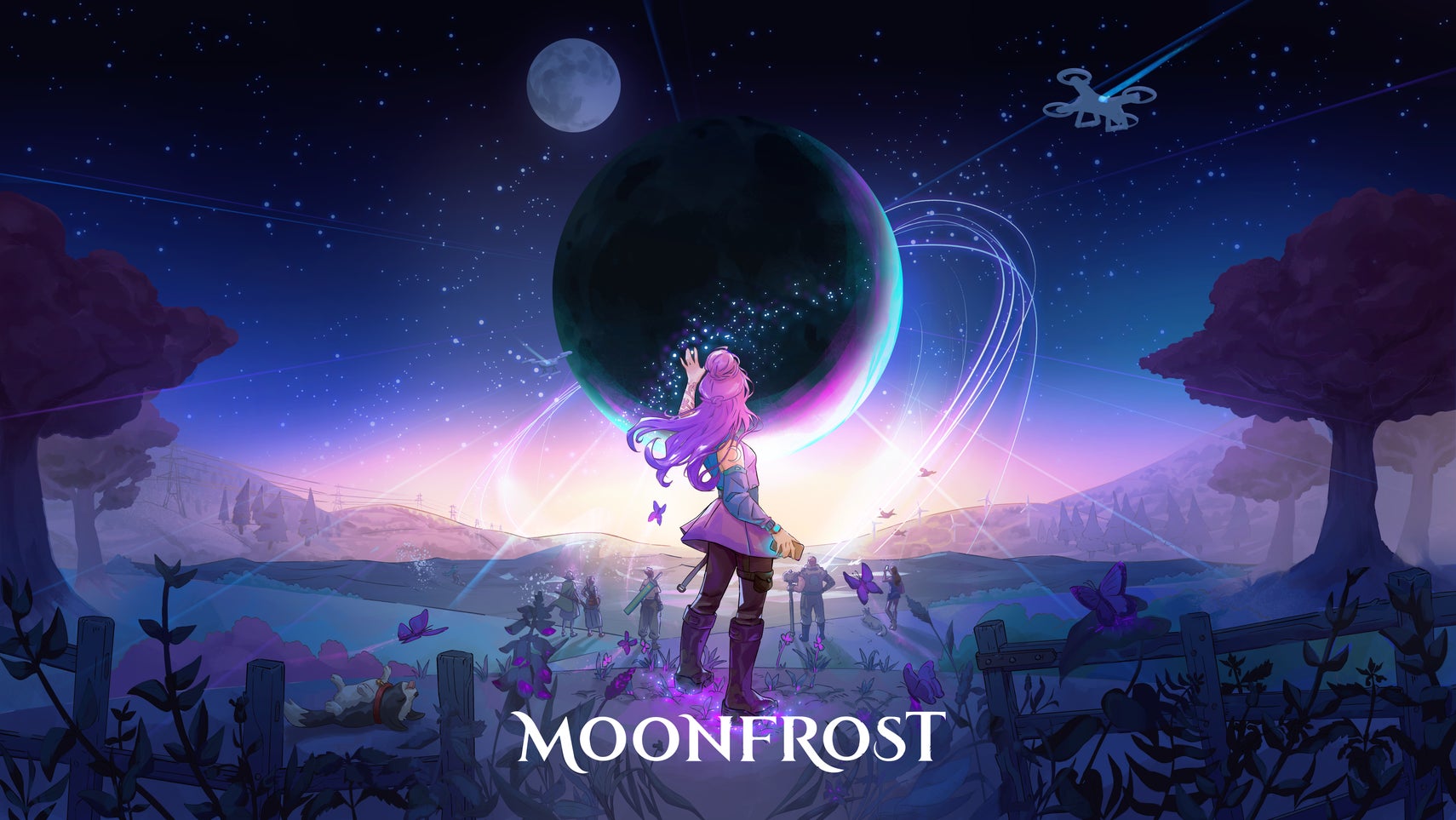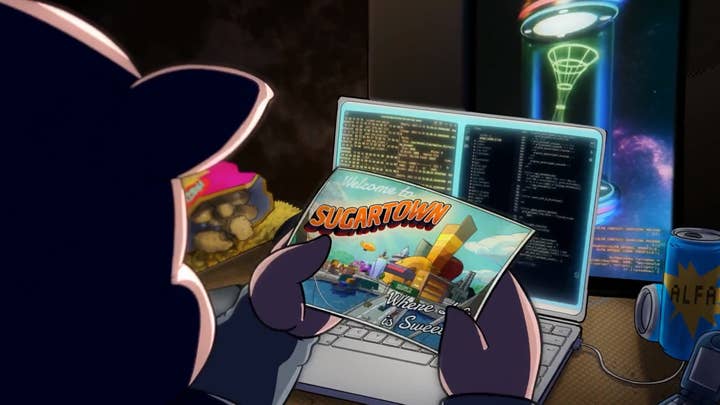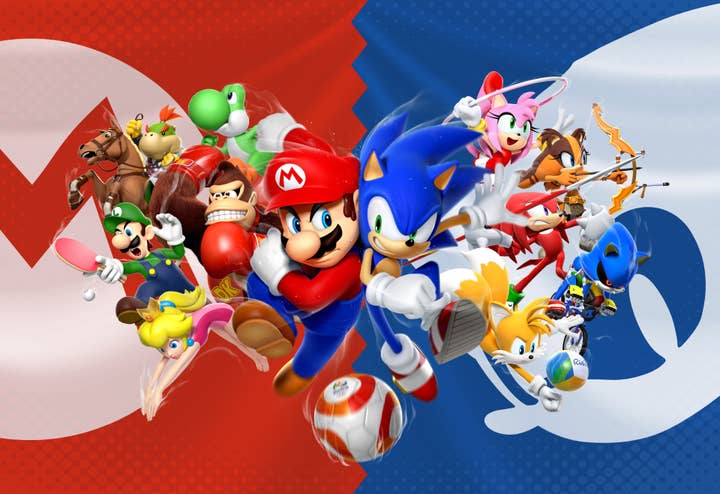Oxalis Games, an independent developer, is altering its approach to the forthcoming cozy RPG, Moonfrost, by abandoning web3 and NFTs.


Web3 and Crypto
News and articles about Web3 technologies in video games, the impact of blockchain on the games industry, and crypto games.
With new releases like Split Fiction and FragPunk, as well as strong performances from older hits, it is time to take a look at the key changes on the Steam charts. Here are the top products on the platform by gross revenue over the past seven days.
Dauntless has reached its release on Steam five years after its original launch. Users have received it, to put it mildly, coldly. Currently, Dauntless has an "overwhelmingly negative" rating on Steam with only 14% positive reviews.
The average lifespan of blockchain or Web3 games is only four months, according to a study by the ChainPlay platform. This conclusion was reached after analyzing 3,279 projects in this segment.
Ubisoft doesn't seem to have lost faith in NFTs. Last week, the company released the crypto game Champions Tactics: Grimoria Chronicles. It uses the Oasys blockchain and is available exclusively on PC.
The so-called “activist short-selling” firm Hindenburg Research has released a report on Roblox and its business. The company accused the game platform of manipulating metrics and lying to investors, among other things.
Last summer, Zynga announced its first game with NFTs—Sugartown. A year later, the company got rid of it and sold "all products with assets" to the startup D20 Labs
Zynga has exited its involvement in the web3 project Sugartown, transferring it to a new entity named D20. The announcement was made by D20 on social media, confirming that it had "acquired all products and assets under Sugartown from Zynga." D20 was established by Matt Wolf, the former Vice President of web3 gaming at Zynga, and Tommy Ngo, the previous General Manager for web3 at Zynga. According to Pocket Gamer, a team member indicated on social media that "D20 consists entirely of former members of the Zynga web3 team."
While we all know which game topped the Steam charts last week, there were still plenty of interesting changes and comebacks. Let’s take a closer look at the highest-grossing titles on the platform over the past seven days.
Identifying the most successful licensing agreements in the history of the gaming industry often highlights several standout examples. Among the most iconic is Rare's GoldenEye, and franchises like Lord of the Rings and Star Wars have seen varied success alongside notable failures. However, for a consistently successful licensing story, one often needs to turn to sports licenses. EA's extensive partnership with FIFA, which endured for nearly three decades and resulted in the sale of hundreds of millions of games, undoubtedly holds the top position. Additionally, the Mario & Sonic at the Olympic Games series deserves recognition. This six-game series covered both Summer and Winter Olympics, from Beijing in 2008 to the postponed Tokyo 2020 games. Leveraging a license from the International Olympic Committee, and resulting from a once-unlikely collaboration between Sega and Nintendo, these games achieved considerable commercial success. Despite not rivaling FIFA's sales, they were well-received and successful, which is notable given the challenging nature of working with the Olympic license
The analytical platform Helika conducted a study focused on the Web3 games market. Among other things, it provided insights on the state of investments from February 2023 to February 2024
Last week, no game could dethrone Counter-Strike 2 from the top spot on the Steam charts. Here’s how other titles, including Hellblade II, performed.
Metacrtic has released its 14th annual game publisher rankings, listing the best and worst of them based on their 2023 releases. This year’s edition is full of interesting shifts, with many indie publishers climbing up and last year’s winner Sony dropping out of the top 10.
Despite its strong launch, Starfield continues to lose its appeal among players. It is now one of the worst-rated games in Bethesda’s portfolio on Steam.
Nekki has decided to enter the Web3 gaming market. She introduced the HTML5 browser—based game Fight Me, a fighting game in a fantastic setting in which NFTS will appear.
The Google Play app store has updated its blockchain policy. Now Android developers have the opportunity to integrate blockchain-based digital content into their products.
The Japanese company SEGA has become cooler about blockchain games. She suspended the development of her own projects and stopped issuing licenses to create blockchain games for her largest IP.
Ubisoft continues to believe in blockchain. The company introduced Champions Tactics: Grimoria Chronicles — its first Web3 game.
Based on the Assassin’s Creed series, an NFT collection will be created. Ubisoft has granted Integral Reality Labs a license to issue non-interchangeable tokens.
Last February, PUBG developers announced that they were going to create their own NFT metaverse in partnership with Naver Z. A year later, it became known that its development had already cost companies 48 billion won, or about $ 36.8 million.
Investors continue to invest in blockchain. The DappRadar platform, together with the Blockchain Games Alliance, estimated that in the first three months of 2023, the volume of investments in games with blockchain and NFT amounted to $ 739 million. This is 12.95% more than a quarter earlier.
Many have been wondering what happened to CD Projekt RED veteran Jason Slama after he was first appointed as the game director of the next Witcher project. It turns out that he is now working on a new NFT title at Pixelcraft Studios.
The legal fight between ZA/UM and Disco Elysium original developers has taken a new turn. It appears that the game’s co-creators Robert Kurvitz and Aleksander Rostov have dropped their claims to the studio.
Epic Games Store (EGS) General Manager Steve Allison discussed the situation with blockchain games in the store with Axios journalists. In his opinion, it is too early to judge the success of such projects in EGS. The first conclusions can be made at the beginning of next year.
There is a decline in the mobile blockchain games market. Analysts from Sensor Tower calculated that by the end of 2022, the revenue of such titles with IAP in Google Play and the App Store fell by 13.9% year-on—year – this is the first drop in five years.
Cryptozima will not be a big problem for the blockchain games market, according to the authors of a recent study on ResearchAndMarkets. They predict that the market turnover will grow from $4.6 billion in 2022 to $65.7 billion in 2027.
Activision Blizzard has announced a change in its leadership team. Daniel Alegre, who has served as its president and COO since 2020, will leave the Call of Duty publisher in 2023.
HitBox Games is an American studio that was launched last year by James Seaman, former vice president of Artifex Mundi. She received $1.6 million from investors, which she is going to spend on an MMORPG with the Swords of Blood blockchain.
The company did not like that the exchanges were going to stop trading its WeMix gaming token on December 8.
The new blockchain publishing house is called Fenix Games. It has already attracted $150 million in investments.
The network noticed a Sony patent for a system that can use the blockchain to track the history of in-game objects like skins, objects or characters. The company filed a patent in May 2021, but it has only now appeared in the public domain.
The French publisher Homa (formerly Homa Games) decided to pay more attention to the blockchain. The company is going to add tools for creating web3 projects to its technology stack.
Another gaming pensioner took up NFT games. Richard Garfield, the author of the most popular collectible card game Magic: The Gathering, is due to release Blockchain Brawlers any day now.
The sale must be carried out through the IAP toolkit. Simply put, Apple will charge 30% from each transaction.
Konami did not specify when exactly the marketplace will open. Now she is looking for specialists who will help develop both the NFT business and the metaverse direction.
According to the company, Vessel is designed not only for token trading. With its help, mobile developers can also integrate NFT into their games and applications.
Brevan Howard Digital and Morgan Creek Digital have also invested in blockchain developers.
Not everything is good in the NFT market. According to the estimates of the DappRadar platform, in the third quarter of 2022, total sales of non-interchangeable tokens amounted to $3.4 billion. This is $5 billion less than a quarter ago, and $9.1 billion less than in the first quarter.
The third WN CEO Summit took place on September 21. This time, it was held in Istanbul, Turkey, attracting around 100 C-level executives of gaming companies from 18 countries.
According to The Information, the corporation will allow developers to sell tokens only through the in-app purchases feature. Apple intends to charge a commission of 30% for each transaction.
According to the mobile developer and publisher, the first blockchain game should be released in the fourth quarter of 2022. BoomBit is working on it together with the company CherryPic.
Cloud Imperium Games has reached a new milestone as its ambitious yet controversial space sim Star Citizen has topped $500 million in crowdfunding. Over a decade in development, the game still has no release date.
South Korean mobile publisher Netmarble has announced its intent to build its own video game museum. The company is now collecting games, devices, and other relics through donations.
Ruckus Games is a new game development studio founded by former Gearbox and Riot employees. The team is now working on a co-op game built with its proprietary technology.
The publisher of Final Fantasy continues to expand into the field of blockchain. The Japanese company has announced that it will become one of the 21 validators in the Oasys blockchain network.
Ubisoft CEO Yves Guillemot has opened up Tencent’s recent investment in Guillemot Brothers Ltd. He noted that this deal won’t affect the company’s independence in any way, while also commenting on the latest share price drop.
Commercial Director of the film studio Vladimir Chibisov told about this during the Eastern Economic Forum. He hopes that thanks to NFT, Soyuzmultfilm’s projects will become more attractive to young people.
Singapore-based tech company Sea has cut some jobs. The layoffs reportedly affected several business units, including Free Fire developer Garena.
The developer under the nickname Fanfaron admitted that he started trading cryptocurrency in the hope of earning more money for the game, but chose the wrong time.
This figure was named by Elliptic. She analyzed data for the 12 months ended July 31, 2022.

/https://gameworldobserver.com/wp-content/uploads/2025/03/fragpunk-avowed-steam-charts-1200x630.jpg)
/https://app2top.ru/wp-content/uploads/2024/12/Snimok-e-krana-2024-12-10-v-13.32.31-1200x630.png)
/https://app2top.ru/wp-content/uploads/2024/12/Axie-Infinity-1200x630.jpg)
/https://app2top.ru/wp-content/uploads/2024/10/Champions-Tactics-1200x630.png)
/https://gameworldobserver.com/wp-content/uploads/2024/10/hindenburg-roblox-1200x630.jpg)
/https://app2top.ru/wp-content/uploads/2024/09/Sugartown-1200x630.jpg)

/https://gameworldobserver.com/wp-content/uploads/2024/08/sins-solar-wukong-steam-1200x630.jpg)

/https://app2top.ru/wp-content/uploads/2024/06/Mocaverse-1200x630.png)
/https://gameworldobserver.com/wp-content/uploads/2024/05/hellblade-steam-charts-1200x630.jpg)
/https://gameworldobserver.com/wp-content/uploads/2024/03/metacritic-publishers-2023-1200x630.jpg)
/https://gameworldobserver.com/wp-content/uploads/2023/12/starfield-steam-negative-1200x630.jpg)
/https://gameworldobserver.com/wp-content/uploads/2023/03/jason-slama-gotchi-guardians-1200x630.jpg)
/https://gameworldobserver.com/wp-content/uploads/2023/03/disco-elysium-kurvitz-1200x630.jpg)
/https://gameworldobserver.com/wp-content/uploads/2022/12/daniel-alegre-600x280.jpg)
/https://gameworldobserver.com/wp-content/uploads/2022/09/wn-ceo-summit-2022-600x280.png)
/https://gameworldobserver.com/wp-content/uploads/2022/09/star-citizen-crowdfunding-600x280.jpg)
/https://gameworldobserver.com/wp-content/uploads/2022/09/netmarble-games-600x280.jpg)
/https://gameworldobserver.com/wp-content/uploads/2022/09/ruckus-games-600x280.jpg)
/https://gameworldobserver.com/wp-content/uploads/2022/09/yves-guillemot-ubisoft-600x280.jpg)
/https://gameworldobserver.com/wp-content/uploads/2022/09/sea-garena-free-fire-600x280.jpg)